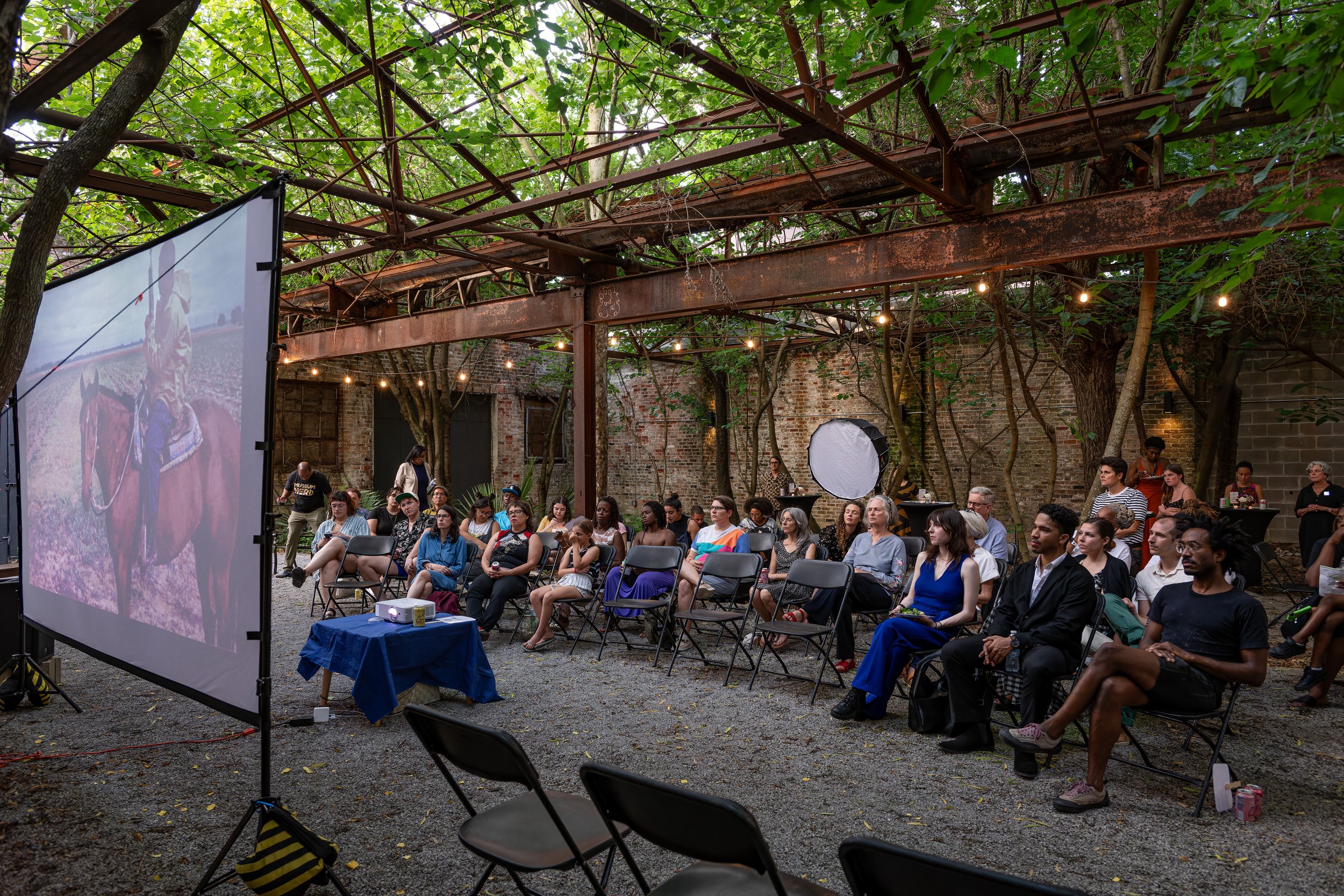
END PLANTATION PRISONS
Slavery never ended in Louisiana.
Every day, the State forces thousands of mostly Black incarcerated people to work. This labor is often extracted in unsafe and humiliating conditions, under threat of further punishment and harm. It often serves no legitimate penological purpose, and is instead designed to shame and control incarcerated people.
The End Plantation Prisons Project seeks to expose the harsh conditions of forced labor across Louisiana by amplifying the voices of those directly impacted by these shameful practices. We envision a system that recognizes the dignity of labor and the humanity of all incarcerated people.
“Angola is still a slave plantation.
People should know. Slavery never ended for us.”
— Terrance Winn
LATEST NEWS
TAKE ACTION
Join the fight to make prison and jail phone calls free!
LITIGATION
PJI & RBB Challenge Unconstitutional Conditions of Forced Labor at Angola
VOTE, et al. v. LeBlanc, et al., 3:23-cv-1204-BAJ-EWD (M.D. La).
On Saturday, September 16, the Promise of Justice Initiative and Rights Behind Bars filed a lawsuit against the Louisiana Department of Corrections and Prison Enterprises challenging the harsh and unconstitutional conditions of forced agricultural labor at the Louisiana State Penitentiary, or Angola
“Louisiana’s evolution from mass enslavement to mass incarceration is undeniable,” said Lydia Wright, PJI Associate Director of Civil Litigation. “Angola’s fields were once cultivated by enslaved people. Today, the State forces incarcerated men—primarily Black men—to plant and pick plantation crops by hand, without safety equipment and in extreme heat and humidity. The State extracts this labor by threatening incarcerated men with serious harm, including disciplinary confinement, if they protest the unsafe work conditions or fail to meet arbitrary efficiency quotas. This is cruel and unusual.”
Punitive by Design
2023 REPORT
THE FARM LINE AT THE LOUISIANA STATE PENITENTIARY
Making Prison & Jail Phone Calls Free
As part of the Promise of Justice Initiative’s End Plantation Prisons project, we are a proud coalition partner with organizations and individuals committed to ending the extractive economies from mass incarceration, including expensive prison and jail phone calls.
The coalition is fighting for free phone calls for families in Louisiana who pay very high rates to talk with their incarcerated loved ones in jails and prisons. Money extracted from struggling families or incarcerated people go to private, for-profit, providers to enrich their billionaire owners, private equity firms, and shareholders. Corporations should not exploit vulnerable people who only want to maintain basic familial bonds.
Keeping families connected through the trauma of incarceration:
reduces recidivism,
benefits the mental well-being of incarcerated people,
and increases the educational outcomes of children with incarcerated parents.
Our free phone calls campaign builds on the incredible win by our coalition partners, who successfully pushed the Federal Communications Commission (FCC) to release new regulations on telecommunications for jails and prisons in the United States.
The coalition’s first goal is to work with Sheriff Susan Hutson and the New Orleans City Council to pass a resolution that will make Orleans Parish Jail’s phone calls completely FREE.
TAKE ACTION
Real change starts at home. Together, we can keep Louisiana families connected with their incarcerated loved ones.
VIDEO TESTIMONY
Forced Labor in the Bayou State
LISTEN TO THE STORIES OF DIRECTLY IMPACTED PEOPLE
Photo credit to Jackson Hill.
Plantations and Prisons: a History of Forced Labor in Louisiana
VIDEO TESTIMONY
Photo and video credit to Jackson Hill.
Request for the Department of Justice to Investigate the Farm Line
INVESTIGATING THE FARM LINE
PJI and RBB have asked the U.S. Department of Justice investigate the DOC’s operation of the Farm Line in a manner that discriminates against people with disabilities. This includes the DOC’s practice of forcing people with serious disabilities and health conditions to work the Farm Line in extreme heat and humidity.







